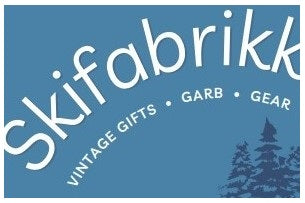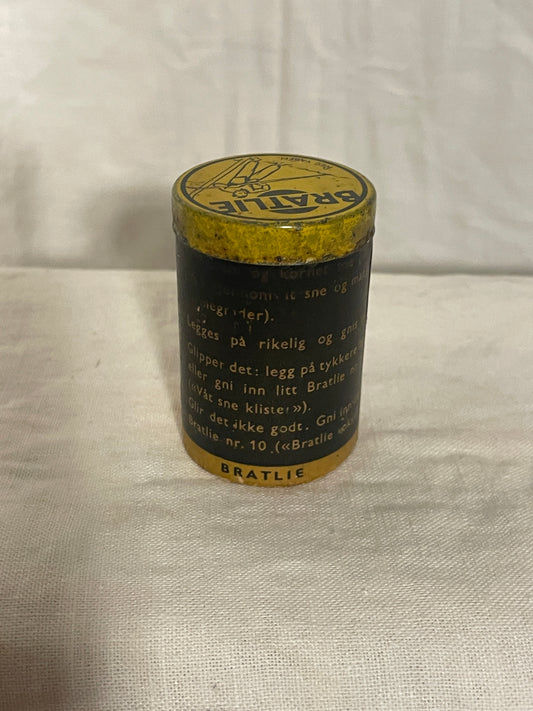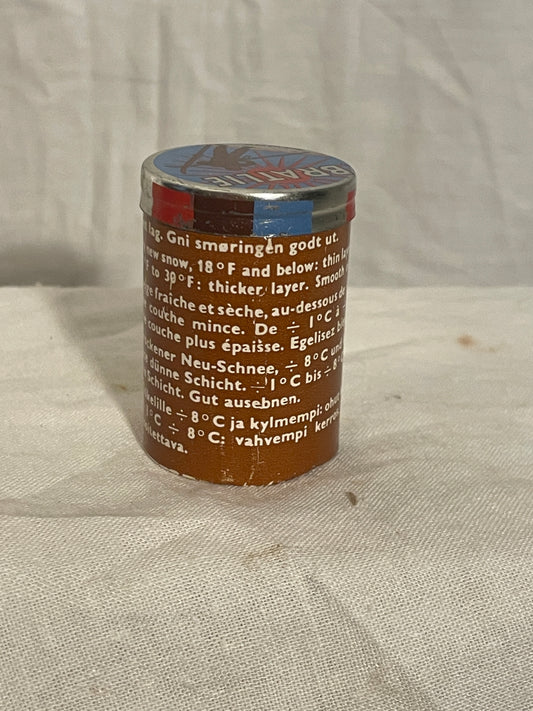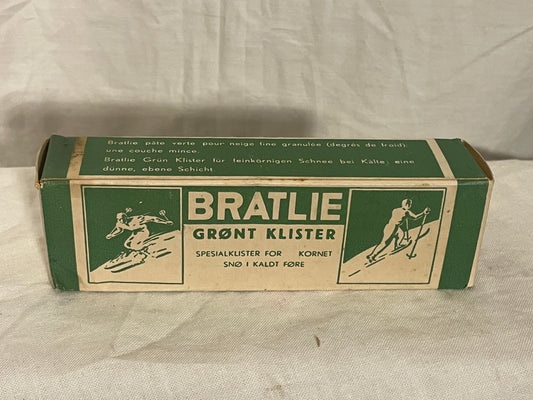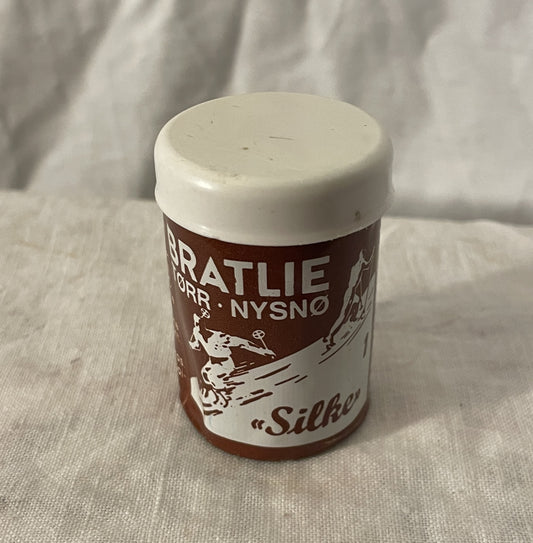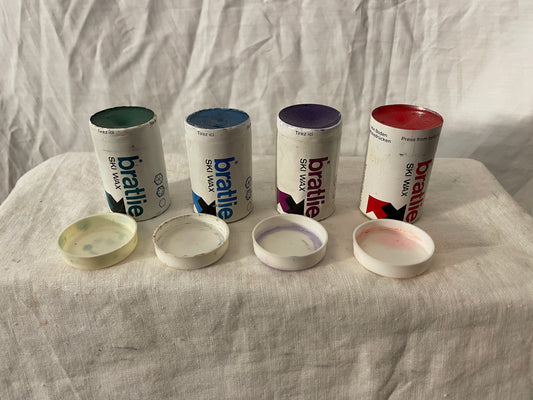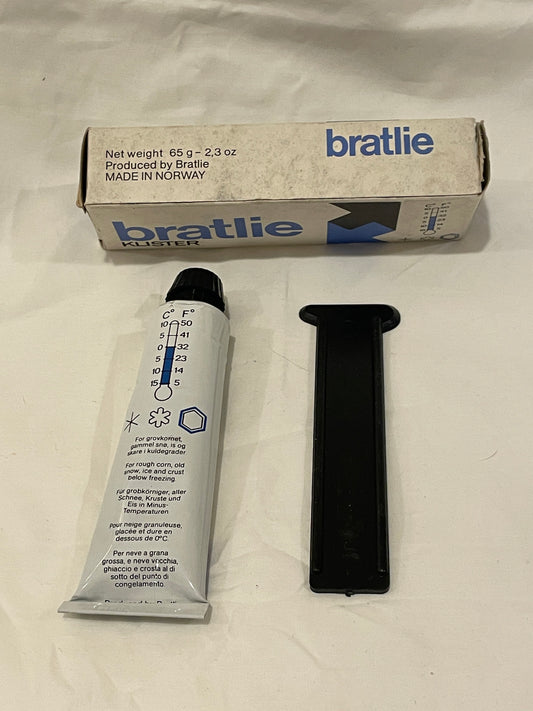Collection: Bratlie (Nor)
Torger Bratlie was an Oslo local (Nittedal, later home to Blå-Skia) who took out several patents on ski wax in the 1920s. With some partners he began commercial manufacture of waxes in the basement at Etterstadgata 4 in Vålerenga, Gamle Oslo. (If you're coming into Oslo on the E6 from the airport, that area is on the right, before the first tunnel where your GPS goes nuts)
Bratlie made a very popular line of tar-based waxes. In the early 1970s the company was purchased by Astra, the parent company of Swix. Bratlie-branded waxes were made through the 1970s and then the product line was discontinued.
Bratlie also made waxes for the Slazenger brand.
According to historian Ørnulf Martinsen, who wrote a history of Bratlie wax and the premises on which production took place, well over 1 MILLION units of wax were produced in the basement at Etterstadgata 4 over a 50 year period. And, most of the time, the operation was run by one person! (Hans Olsen Oset)
Bratlie classic lineup, before sale to Swix. The last generation of Bratlie was a familiar lineup of 4 colored hardwaxes and 2 klisters; not listed below.
| 1 - Silke - for tørr nysnø (cold dry new snow). Sold in tin | 6 - Hoppsmøring - you guessed it; wax for ski jumping. Sold in tin |
| 2 - Blanding - for new snow under and around 0c. Sold in tin | 7 - Grønt klister - for corn snow in cold temps. Sold in can or tube. Originally #7 was a new wet snow klister (later #10) |
| 3 - Klistervoks - for wet and grainy snow (but not too wet or warm!). Sold in tin | 8 - Våt snø klister - for corn snow above freezing. Sold in can or tube |
| 4 - Skarevoks - for old and corned snow in cold temperatures. Sold in tin | 9 - Skareklister - for sharp snow in cold temperatures. Sold in can or tube |
| 5 - Slalåm / Utforkjøren - for downhill skiing. Sold in tin | 10 - Yellow klister for wet new snow. Sold in can or tube. Originally was a cover product "for god gli"; yellow klister was #7 (and was green!) |
Hardwaxes (1 - 6) were sold in cylindrical tins like modern hardwax. Some were tear-off, and some were push-up. Earlier versions had cardboard wrapping onto which the graphics were printed. Klisters initially came in a can about the size of a small biscuit. Later, klister was sold in tubes, as is common now
-
1950s Bratlie "Yellow Cap" Hardwax
Regular price $29.99Regular priceUnit price / per -
1950s/1960s Bratlie Hardwax - BEAUTIFUL Graphics!!
Regular price $24.99Regular priceUnit price / per -
1950s/1960s Bratlie Klister - Skier's Choice!!!
Regular price $24.99Regular priceUnit price / per -
1960s Bratlie Hardwax - Last of the Traditional Line!
Regular price $19.99Regular priceUnit price / per -
1970s Bratlie Hardwax - Unused!!! Last Gasp for Bratlie!
Regular price $19.99Regular priceUnit price / per -
1970s Bratlie Klister - NOS - Unused Tube - Original Box - Scraper
Regular price $19.99Regular priceUnit price / per
